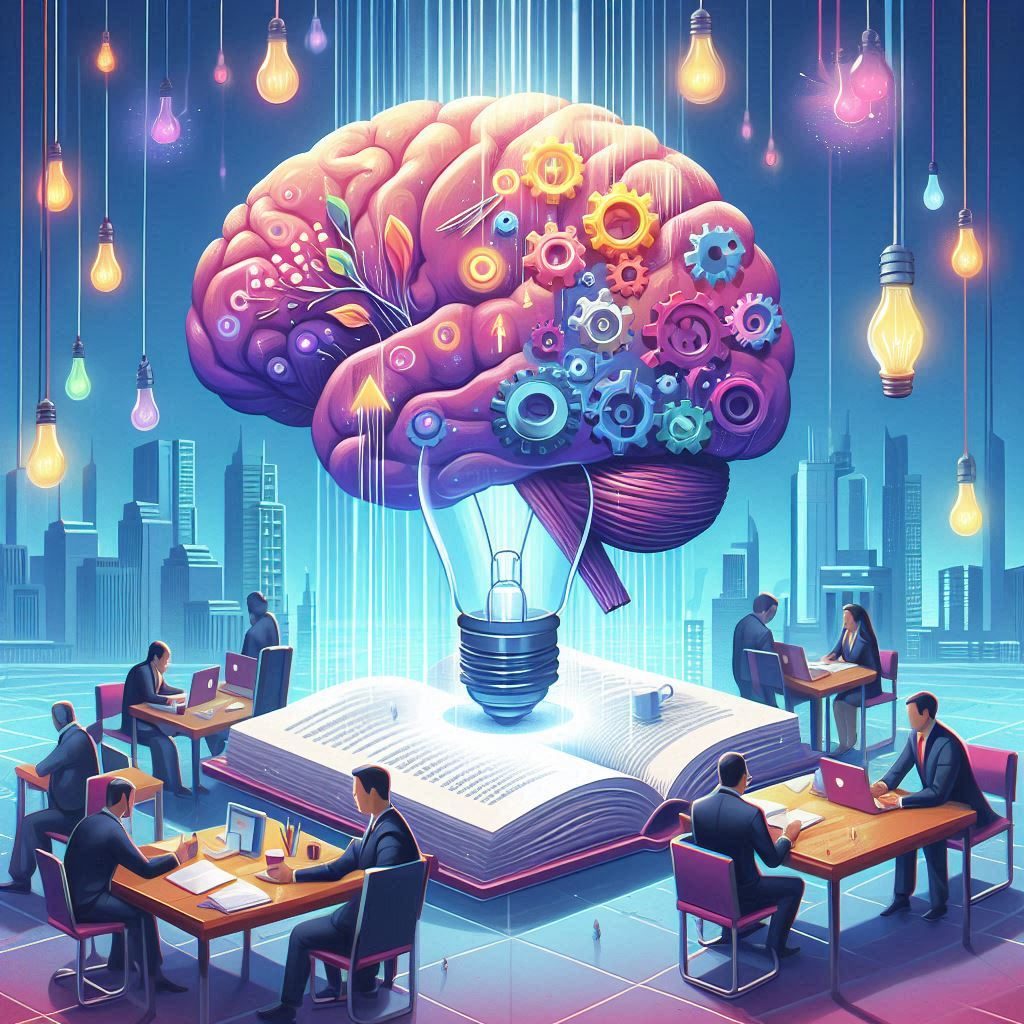Mastering Critical Thinking Skills: Your Key to Success in Life and Work
Critical thinking is a skill that is more vital today than ever before. In a world where information is abundant but not always accurate, thinking critically allows individuals to make informed decisions, solve problems effectively, and navigate the complexities of modern life. Whether in education, the workplace, or everyday interactions, critical analysis is a tool that empowers us to question assumptions, evaluate evidence, and arrive at well-reasoned conclusions. This article explores the importance of critical thinking across various aspects of life, its challenges, and strategies to cultivate this essential skill.
What is Critical Thinking?
Critical thinking is more than just a buzzword; it’s a fundamental cognitive process that involves analyzing, evaluating, and synthesizing information to form a reasoned judgment.
Definition and Overview
At its core, critical thinking is the ability to think clearly and rationally and understand the logical connection between ideas. It involves questioning assumptions, identifying biases, and considering alternative perspectives. Critical thinkers don’t take information at face value; instead, they scrutinize the evidence, assess the validity of arguments, and draw conclusions based on logic and reason.
The Core Elements of Critical Thinking
Critical thinking encompasses several key elements, including analysis, evaluation, inference, and explanation. Analysis involves breaking down information into its constituent parts, while evaluation requires assessing the credibility and relevance of that information. Inference is the process of drawing logical conclusions from available evidence, and explanation involves articulating the reasoning behind those conclusions.
The Role of Critical Thinking in Everyday Life
Critical thinking isn’t just for philosophers or academics; it’s a practical skill that can significantly improve everyday decision-making and problem-solving.
Decision-Making and Problem-Solving
Every day, we make countless decisions, both big and small. Critical thinking helps us make better decisions by weighing the pros and cons, considering the potential consequences, and choosing the best course of action.
Avoiding Cognitive Biases
Cognitive biases are systematic errors in thinking that can cloud our judgment and lead to poor decisions. Critical thinking helps us recognize and overcome these biases, allowing us to approach problems with a clear and open mind.
Enhancing Communication and Relationships
Effective communication is built on a foundation of critical analysis. Thinking critically allows us to express our ideas more clearly, listen more effectively, and engage in meaningful conversations.
Active Listening and Analytical Conversations
Active listening involves fully concentrating, understanding, responding, and remembering what is being said. Combined with critical thinking, it allows us to engage in analytical conversations where ideas are exchanged and examined thoughtfully, leading to deeper understanding and stronger relationships.
Critical Thinking in Education
The education system plays a crucial role in developing critical thinking skills, which are essential for students’ success in the real world.
Preparing Students for the Real World
In today’s fast-paced world, thinking critically is more important than ever. Schools must prepare students to not just absorb information but also question it, analyze it, and apply it in real-world situations.
Integrating Critical Thinking into the Curriculum
Educators should integrate critical analysis into the curriculum across all subjects to foster critical analysis. This means encouraging students to ask questions, challenge assumptions, and explore different perspectives rather than simply memorizing facts.
The Benefits of Critical Thinking in Academic Success
Critical analysis is closely linked to academic success. Students who can think critically are better equipped to understand complex concepts, engage in deep learning, and perform well in their studies.
Developing Independent Learners
Critical thinking fosters independence in learning. Instead of relying solely on teachers or textbooks, students learn to research, analyze, and draw conclusions, making them more self-sufficient learners.
Critical Thinking in the Workplace
Critical analysis is a valuable asset in the workplace. It can enhance decision-making, foster innovation, and improve team dynamics.
Improving Decision-Making Processes
Businesses today face complex challenges that require thoughtful and strategic decision-making. Critical thinking enables employees to evaluate options, anticipate risks, and make decisions that are in the organisation’s best interest.
Fostering Innovation and Creativity
Innovation thrives in an environment that encourages critical thinking. Employees can develop creative solutions to problems by questioning the status quo, leading to new products, services, and processes.
Building Effective Teams
Teams that think critically are more effective because they are better at problem-solving, decision-making, and collaborating.
Collaboration and Problem-Solving
Critical thinking promotes collaboration by encouraging team members to share their perspectives, challenge each other’s ideas, and work together to find the best solutions.
Challenges to Developing Critical Thinking Skills
Despite its importance, developing critical analysis skills can be challenging due to various obstacles, including cognitive biases, media influence, and education systems.
Overcoming Cognitive Biases and Fallacies
Cognitive biases, such as confirmation and groupthink, can hinder critical thinking by distorting our perception of reality. Overcoming these biases requires self-awareness and a willingness to question our assumptions.
The Influence of Media and Social Networks
In today’s digital age, media and social networks play a significant role in shaping our opinions. Critical analysis is essential for navigating this landscape, allowing us to discern credible information from misinformation.
Education Systems and Critical Thinking
Some education systems and teaching methods may inadvertently hinder the development of critical analysis skills.
Teaching Methods that Hinder Critical Thinking
Traditional teaching methods that focus on rote memorization rather than active inquiry can stifle critical thinking. To foster this skill, educators should adopt teaching strategies that encourage exploration, questioning, and debate.
How to Cultivate Critical Thinking Skills
Cultivating critical reasoning skills requires intentional effort and practice, both on an individual level and within educational and organizational settings.
Strategies for Individuals
Individuals can develop their critical thinking skills by actively seeking out opportunities to engage in reflective and analytical thinking.
Asking Questions and Seeking Evidence
One of the most effective ways to cultivate critical thinking is by asking questions. Whether it’s questioning assumptions, seeking evidence, or exploring alternative perspectives, curiosity is at the heart of critical analysis.
Strategies for Educators and Leaders
Educators and leaders are crucial in fostering critical analysis within their students and teams.
Creating an Environment that Encourages Critical Thinking
To cultivate critical thinking, educators and leaders should create environments that encourage curiosity, open dialogue, and exploring new ideas. This can be achieved through group discussions, problem-based learning, and debates.
The Future of Critical Thinking
The need for critical thinking will only grow as the world becomes more complex. Preparing for the future requires adapting critical analysis skills to new challenges and environments.
The Growing Need for Critical Thinking in a Complex World
Critical thinking is more important than ever in a world characterized by rapid technological advancements and increasing complexity. It enables us to navigate uncertainty, make informed decisions, and address the challenges of the 21st century.
Adapting Critical Thinking for the Digital Age
The digital age presents both opportunities and challenges for critical thinking. While technology provides access to vast amounts of information, it also requires us to be more discerning in evaluating its credibility. Adapting critical analysis for the digital age means being aware of digital literacy and the impact of algorithms and biases on the information we consume.
Conclusion
Critical thinking is an essential skill that empowers individuals to make informed decisions, solve problems effectively, and navigate the complexities of modern life. Critical analysis enhances our ability to question assumptions, evaluate evidence, and arrive at well-reasoned conclusions in education, the workplace, or everyday interactions. As we move forward in an increasingly complex world, the importance of critical analysis will only continue to grow. By cultivating this skill, we can ensure that we are better equipped to face future challenges confidently and clearly.
FAQs
1. What is the definition of critical thinking?
Critical thinking is the ability to think clearly and rationally, understand the logical connection between ideas, and make well-reasoned decisions based on evidence and logic.
2. How can critical analysis improve decision-making?
Critical analysis helps improve decision-making by enabling individuals to analyze information, weigh options, and consider the potential consequences of their choices before taking action.
3. Why is critical analysis important in education?
Critical analysis is important in education because it prepares students to think independently, question assumptions, and apply their knowledge in real-world situations, leading to academic success and lifelong learning.
4. How can I develop my critical analysis skills?
You can develop your critical analysis skills by asking questions, seeking evidence, exploring different perspectives, and regularly engaging in reflective and analytical thinking.
5. What role does critical analysis play in the workplace?
In the workplace, critical analysis enhances decision-making, fosters innovation, and improves team collaboration, leading to more effective problem-solving and better organizational outcomes.


